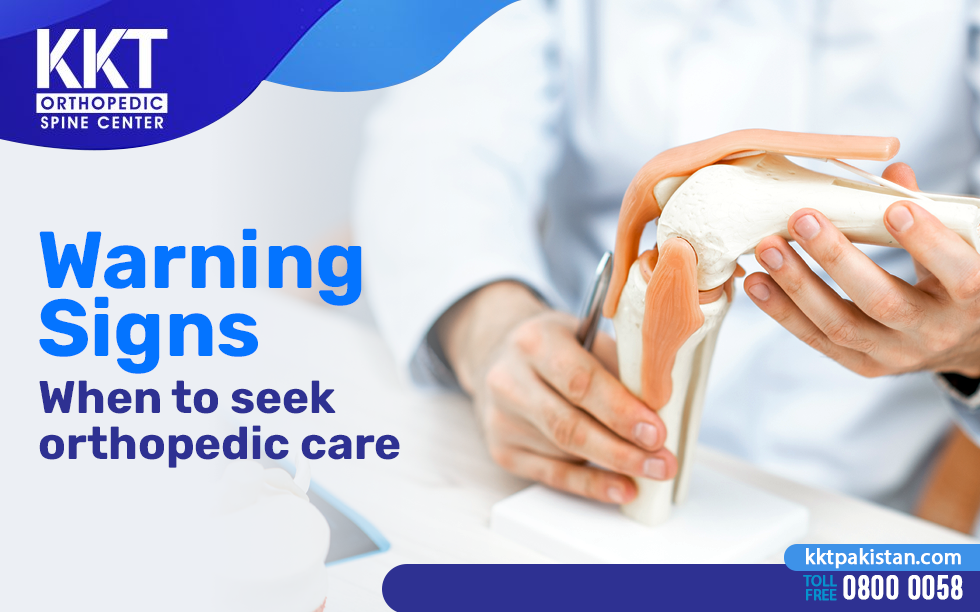Many of us experience joint and muscle pain at some point, and many experience musculoskeletal injuries which require immediate orthopedic care. You’ll likely see an orthopedic doctor if you need special tests and treatment for your injury.
What does the term orthopedics mean?
Orthopedics is a medical field that treats the musculoskeletal system, which includes the body’s muscles and bones. This specialty is focused on diagnosing diseases, injuries, and conditions of the ligaments, tendons, and nerves.
5 Major Orthopedic Warning Signs
Any orthopedic ailment can cause discomfort and pain. Most of the time, you might think you can tough it out or that it will disappear on its own to avoid seeing a doctor. An orthopedic specialist will help you manage pain and recommend a procedure that will give you long-lasting relief.
Now, the question is when you must see an orthopedic specialist.
We have listed all the severe issues that require medical attention. Join us as we delve into orthopedic spine care for a better and healthier You.
Chronic Back pain
Back pain is a common problem. The primary cause is muscle strain or bad posture. It resolves with time and some self-care, but persistent back pain requires medical attention.
When back pain intensifies with time, self-care does not help anymore. It’s a sign that persistent pain stems from a range of spinal-related conditions, herniated discs, spinal stenosis, and sciatica.
Spinal Deformities
Changes in your spinal structure, such as hunchback, uneven shoulders, or leaning forward, are spinal deformities. It impacts your appearance, causing discomfort and pain. These conditions are referred to as kyphosis and scoliosis. Early intervention helps to manage these conditions and prevent them from worsening.
Difficulty in walking
Does walking even shorter distances feel like climbing a mountain? Then, it’s a red flag, and you must seek orthopedic care. Difficulty walking or upright posture are symptoms of spinal arthritis and spinal degeneration. They can diminish the range of motion.
Your doctor might recommend some lifestyle changes and suggest activities for pain management and to keep your body in movement.
Swollen joints
When fluid builds up in soft tissues surrounding joints, swelling tends to occur. It can be caused by bacterial infection, trauma, or chronic arthritis. Rare reasons for swollen joints include spondylitis, rheumatic fever, and hypothyroidism. If you have a swollen joint and a fever, seeing an orthopedic consultant is essential.
Tingling and Numbness
A needle-like or tingling sensation is often felt in arms and legs for a short period. This feels annoying but is not harmful. When this tingling sensation is frequently accompanied by pain, numbness, itching, and reduced range of motion, it’s a sign of a pinched nerve, stress injuries, or bacterial or viral infection. It is recommended that you see an orthopedic doctor.
Key Takeaways
You might visit an orthopedic doctor if you have joint pain, inflammation, or other reasons listed below:
- Decrease in range of motion.
- Osteoarthritis
- Hip or knee pain that worsens upon standing
- When your daily activities are affected due to pain and discomfort.
- Chronic pain (lasting more than 12 weeks)
- Acl tears or fractures
For pain-free living and a healthier YOU, schedule an appointment with our expert team of orthopedic consultants.

